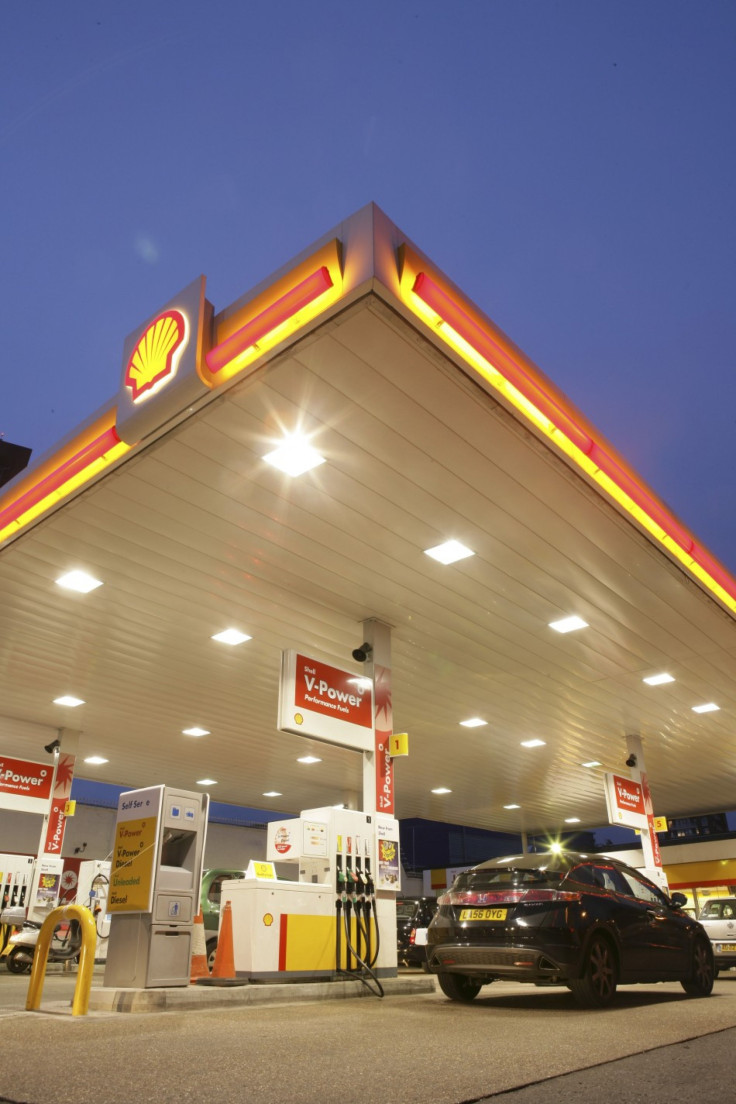Europe's Shell, Eni, Statoil Record Profit Gains on Higher Prices
European oil groups' profits jump on higher prices

Major European energy groups posted big jumps in profits on Thursday, driven by higher oil and gas prices and new capacity coming onstream.
Royal Dutch Shell Plc (RDSa.L), Europe's largest oil company by market capitalisation, said its underlying current cost of supply (CCS) net income, which excludes one-offs and non-cash accounting charges, soared 42 percent in the third quarter, to $7.0 billion (4.4 billion pounds), helped by big, new high-margin projects.
Italy's Eni (ENI.MI) reported a 19 percent rise in its underlying, or adjusted net profit, in dollar terms, to $2.6 billion, as pricier crude outweighed the loss of Libyan production.
Norway's Statoil (STL.OL) said its adjusted net income rose 50 percent to $2.07 billion in the third quarter, boosted by a 14 percent increase in production compared with the same period last year.
Statoil and Shell earnings were broadly in line with analysts' forecasts, while Eni outperformed by 20 percent.
Shell's London-listed A shares traded up 1.5 percent at 2,287 pence at 12:42 a.m., compared with a 12.15 percent rise in the STOXX Europe 600 Oil and Gas index .SXEP. Statoil shares rose 2.26 percent to 144.9 Norwegian crowns.
Later on Thursday, Exxon Mobil, the world's largest publicly-traded oil company, is expected to report a 40 percent jump in third-quarter net income to $10.26 billion, according to I/B/E/S estimates.
The main driver of the profit growth was a 48 percent jump in Brent crude in the quarter compared with the same period last year, to average $113 per barrel.
Analysts said the results painted an uncertain picture of the companies' production plans. Shell's production fell 2 percent to 3.01 million barrels of oil equivalent (boepd) but stripping out field sales, output rose.
Statoil said that in spite of the strong quarterly result, output would fall slightly this year, before recovering next year.
We don't yet believe that the current portfolio will meet medium term production growth expectations, said Oswald Clint, oil analyst at Bernstein.
Eni's production fell 13.6 percent due to the conflict in Libya. Excluding this, output was flat.
Nonetheless, analysts agreed that Shell was entering a sweet spot of strong cash flow thanks to its Athabasca oil sands project in Canada, and its Pearl gas-to-liquids and Qatargas liquefied natural gas plants in Qatar.
The 'big 3' projects are delivering less than 50 percent plateau production and Qatar less than 50 percent of plateau cashflows, hence significant momentum remains, said Jon Rigby, oil analyst at UBS.
The Japan earthquake earlier this year and subsequent shut down of nuclear plants has boosted demand for natural gas, especially liquefied natural gas, in which Shell is a market leader.
The Hague-based company said LNG sales rose 12 percent, and Eni also reported higher LNG volumes, echoing buoyant LNG results reported by smaller rival BG Group on Tuesday.
Shell's chief financial officer Simon Henry told a conference call with reporters that the industry was beginning to see some signs of input cost inflation creeping back in after a period of falling oil services costs.
Eni said payroll costs jumped 6 percent in the quarter compared with the third quarter of 2010.
Shell said its CCS net earnings were $7.2 billion, a 100 percent rise on the same period last year when non-cash accounting charges weighed on the result.
CCS earnings strip out unrealised gains or losses related to changes in the value of inventories, and as such are comparable with net income under U.S. accounting rules.
(Additional reporting by Gwladys Fouche in Oslo and Sarah Young in London; Editing by David Cowell)
© Copyright Thomson Reuters 2024. All rights reserved.











